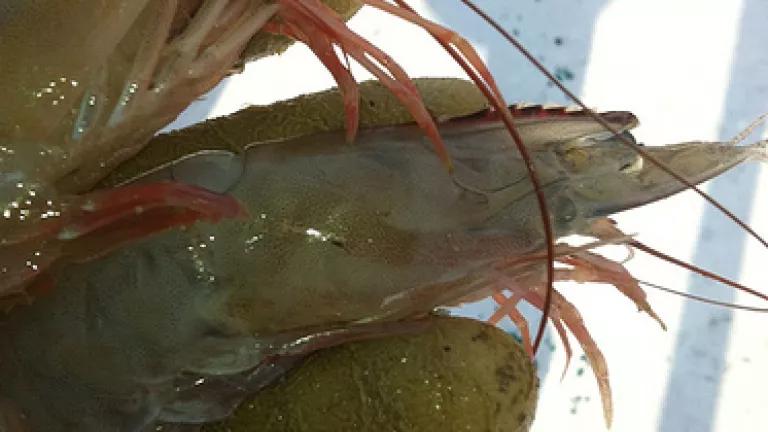
Oil giant BP, the company behind the Deepwater Horizon oil spill, reported profits of $7.7 billion for the last quarter of 2011. Company executives and industry analysts sounded bullish about the company's future in a recent New York Times article, saying they had set aside enough money to compensate victims of the Gulf spill and had plans to expand drilling operations in the Gulf.
BP seems to be recovering nicely after the disaster, which killed 11 people and pumped 170 million gallons of oil into the Gulf of Mexico. But stories from the Gulf suggest that the region is anything but healed.
The Gulf has been plagued with a suite of unexplained afflictions. Gulf fishermen say this is the worst season they can remember, with catches down 80 percent or more. Shrimp boats come home nearly empty, hauling in deformed, discolored shrimp, even shrimp without eyes. Tar balls and dead dolphins still wash up on beaches. Scientists report huge tar mats below the sand, "like vanilla swirl ice cream."
These shrimp without eyes were caught off the Gulf Coast in late 2011
Fishermen, cleanup workers, and kids report strange rashes, coughing, breathing difficulty, eye irritation, and a host of other unexplained health problems that have persisted in the years since the disaster. Many of them have shared their stories with my colleague Rocky Kistner, who worked at NRDC's Gulf Resource Center in Buras, Louisiana.
According to the presidential oil spill commission, there were 79 serious accidents involving loss of well control in the Gulf from 1996 to 2009. These accidents are hardly one-in-a-million occurrences. Yet nearly two years after the Deepwater Horizon disaster, Congress has still not passed comprehensive safety regulations for offshore drilling. Oil companies continue to rely on decades-old oil cleanup technologies, such as the booms and skimmers that picked up just 3 percent of the Gulf spill.
Our ability to prevent and respond to an oil spill hasn't improved much since the BP disaster two years ago. We are still skating on thin ice, yet Congress appears keen to expand drilling.
Expanding drilling might help boost BP's stock prices, but it won't do much to bring down oil prices. Oil is a global commodity, and America simply does not have enough of it to control its price, no matter how much we drill.
A smarter way to use our oil resources is to focus on efficiency. By driving better cars and trucks, improving public transit and using cleaner fuels, we can save eight times more oil than we could get by expanding offshore drilling.
BP and their allies in Congress might want us to forget about the Deepwater Horizon disaster, but residents of the Gulf cannot. Their experience should be foremost in our minds when we think about energy development in this country.
